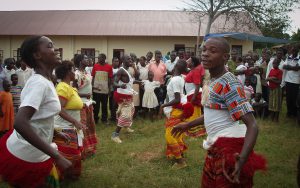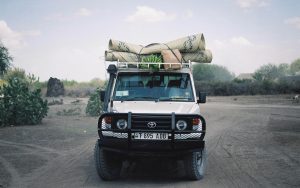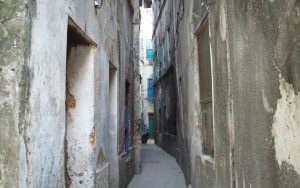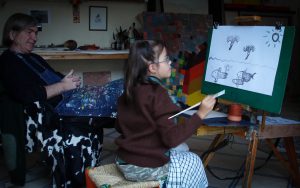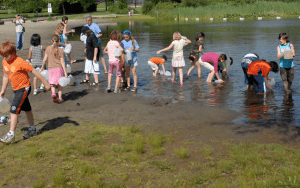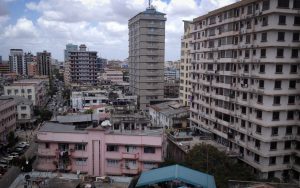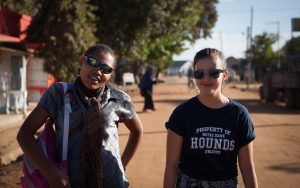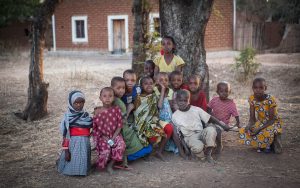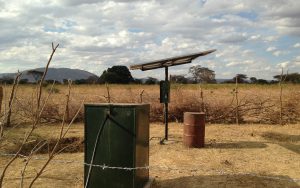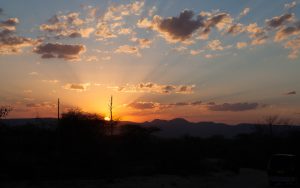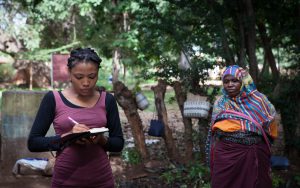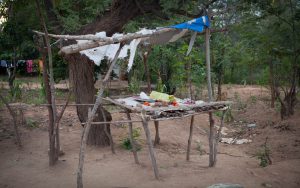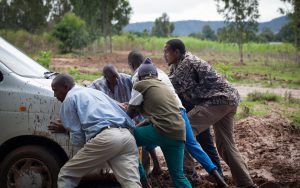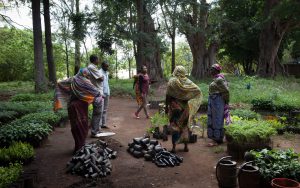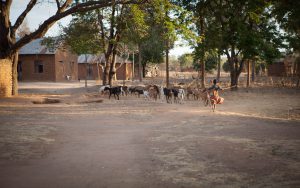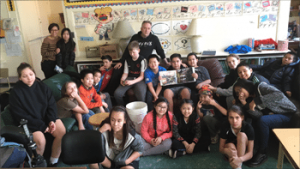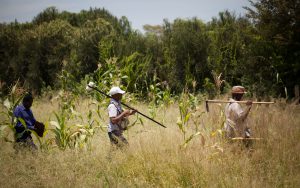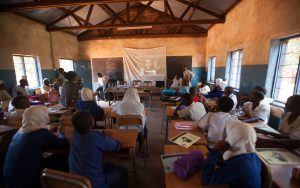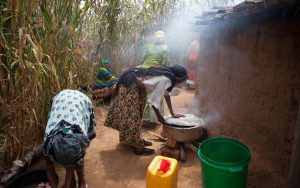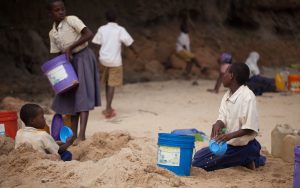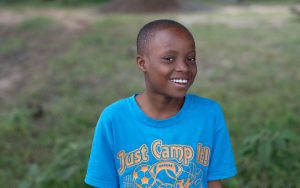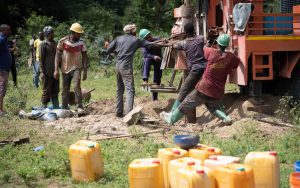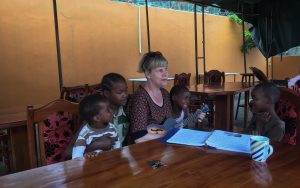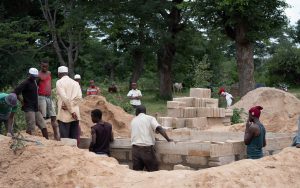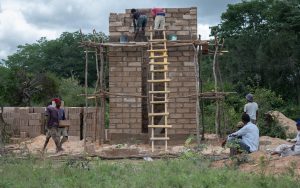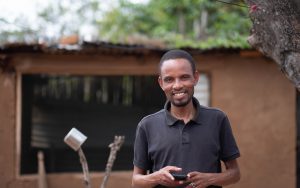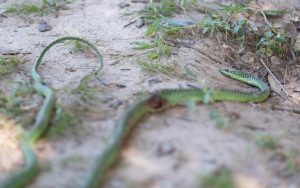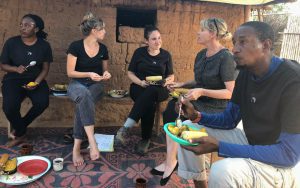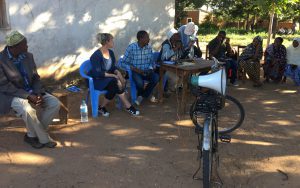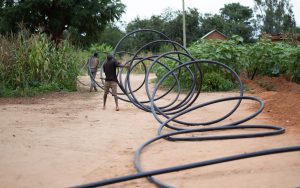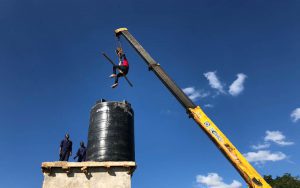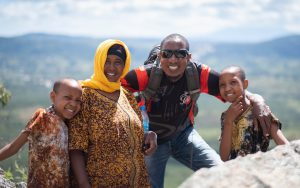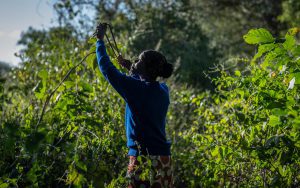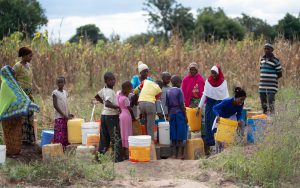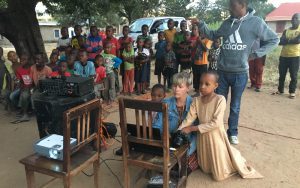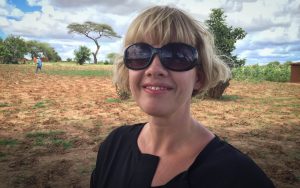We made our way to Zanzibar island tired and dirty. On the way, we passed tiny dhow boats that looked as though they were going to sink under the weight of the fishermen and their passengers.
Due to the centuries of Arab influence, most people on the island are Muslim, so Zanzibar has an interesting combination of African tribal and Arabic sensibilities. It was a place to pause and reflect, and to write.
On our first day there, we took to the narrow stone streets and would have missed a music school had we not gotten lost and taken a few wrong turns. The music was what drew us in as it escaped onto the streets and found us as we wandered. On the top floor, overlooking the Indian Ocean, in an old stone palace, were students practicing the oud, the violin, the harp, and various other instruments.
I had been playing the violin for years, and wherever I went I tried to learn from other musicians—to explore other cultures. So I asked for lessons and met a local musician, Matona.
He played most of the instruments at the school but was an especially skilled violinist. He couldn’t speak much English and my Swahili was laughable, but we communicated through the music and that kept us going for the afternoon. With the distant sound of waves lapping against the shore, I learned taarab scales and traditional songs. I returned the next day to meet his friends as they sat in a circle playing traditional music on the colourful handmade Berber carpets.
Our days followed the rhythm of the ocean tides. The salty breeze made our skin sticky, and the silky white sand cleaned our feet and stuck to our bodies like glue. Crabs scurried into their holes as we walked up the beach hunting for seashells. Local children shimmied up the trees collecting fresh coconuts to sell on the beach
Christmas was soft and peaceful at the local inn on the eastern coast of the Indian ocean where we met up with my sister Rebecca and her partner, Wayne. People worked on the beach, and although you could swim, you had to wait until the tide came in and the women were finished harvesting the seaweed that they carried back on their heads into the village.
On a hot and sunny Christmas day, we woke up early. Zoe was happy that Santa had found his way to the island. She opened her present, a wreath made out of spices that she had spotted earlier in the week. We were so out of reach of commercials and had little pressure to buy useless things. We lingered over our coffee at breakfast and walked up the beach looking for crabs hiding inside the seashells.








That evening, a band arrived from one of the shanty towns to play music for a Ngoma. It’s how women educate each other on “how to be a woman,” which includes sexual education as well as other womanly aspects such as clothing, hygiene, make-up, cooking, and how to treat your husband’s parents. It was rather shocking to see a woman covered from head to toe walking over to you, gyrating her hips, and tying a scarf around your butt so they can see you shake it better while yelling and singing songs. Some people there initiated us quite well to these real east afriocan hip rotations, and Zoe mastered the art.
Music is different here, and the role of a musician is to get the audience members to be active participants. Players are much more laid back and although they are earning money, they have fun. People are less inhibited, and it is infectious. To show appreciation for the band, you wave money around the performers while dancing and moving to the music. After a good five minutes of waving your money around, you finally drop it into the bowl that is set out in front of them.
Later in the evening, many of the villagers came to join us, and Christmas night was spent dancing under the stars to the beat of the Ngoma drums.
There’s a noticeable ease to island life. The sun is hot but there is always a soft breeze to cool you off. The locals harvest seaweed and go fishing in the ocean for parrot, tuna, barracuda, bream, red snapper, and pono to survive. The coconut and mango trees grow all over the island and yield fruit all year round. It’s not hard to find food.
So many years later, these moments feel like a dream. It’s why I finally want to write them down.


